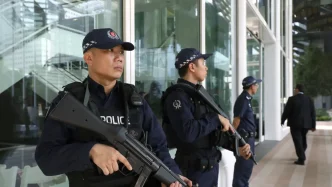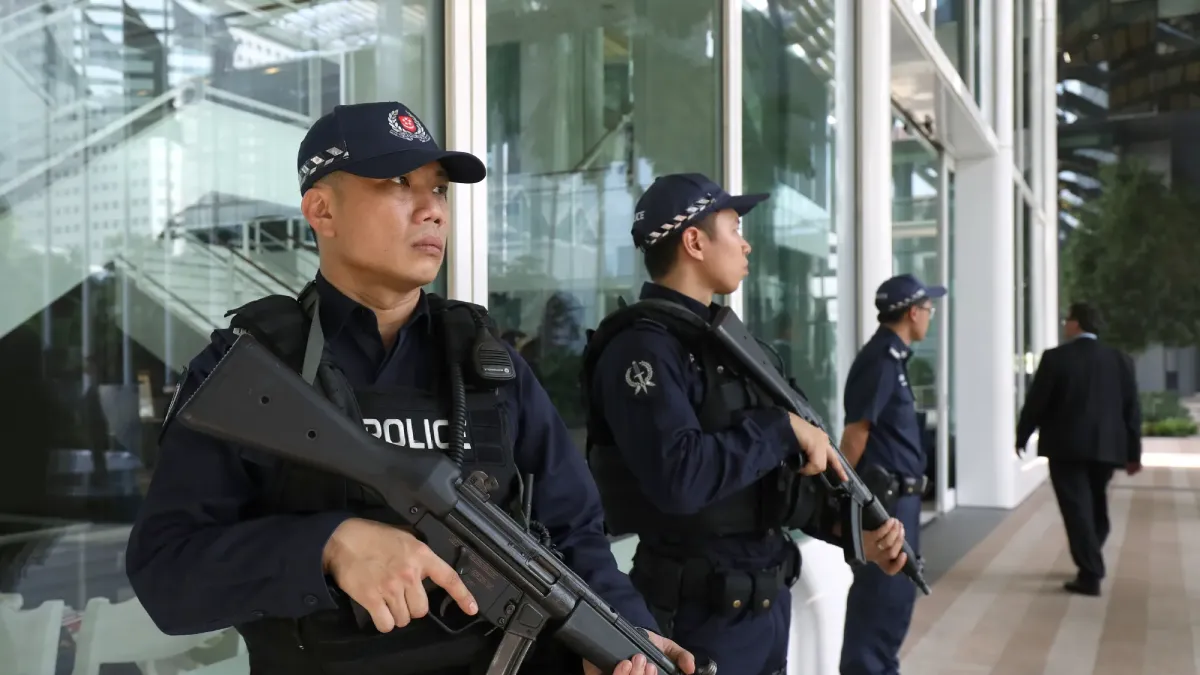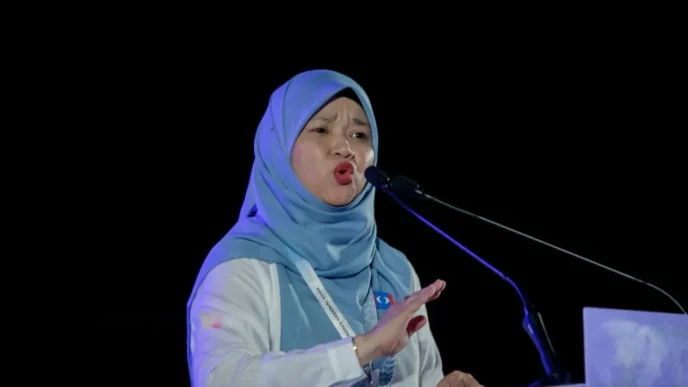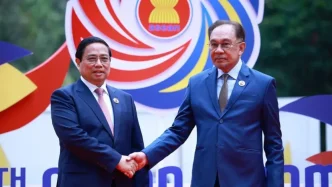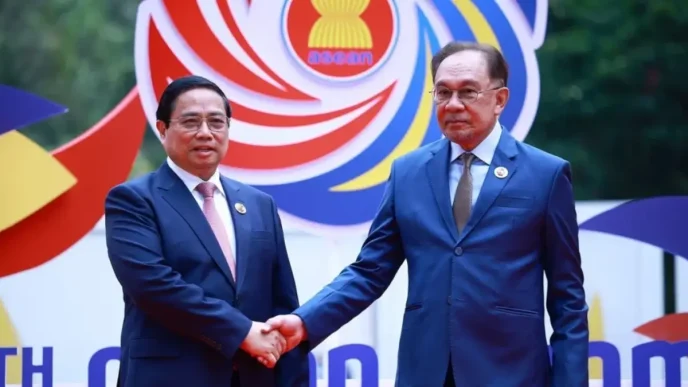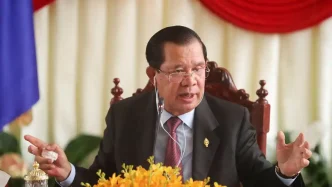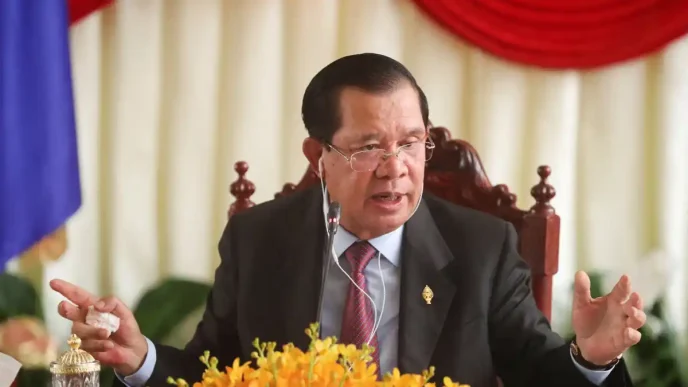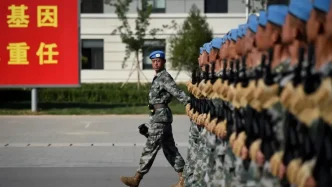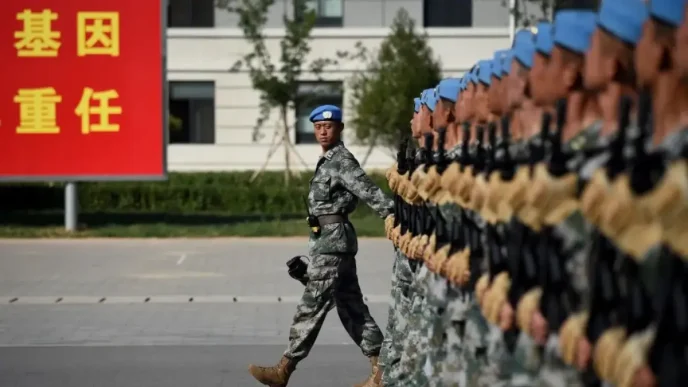Singapore faces a persistently high terrorism threat, fueled by global events such as the Israeli-Palestinian conflict, according to the latest assessment from the Internal Security Department (ISD). The city-state, a global financial hub with a diverse population, remains a potential target for extremist groups and self-radicalized individuals inspired by international tensions. This ongoing risk underscores the challenges of maintaining security in a hyper-connected world where geopolitical strife can have local repercussions.
Heightened Threat Levels
The ISD’s recent report highlights that the terrorism threat level in Singapore remains elevated, driven by both regional and global dynamics. The Israeli-Palestinian conflict, in particular, has been identified as a significant catalyst for radicalization. The protracted violence and polarizing narratives surrounding the issue have resonated with certain individuals, potentially inspiring lone-wolf attacks or small-scale extremist activities.
A report released in 2024 by Singapore’s Department of Home Affairs stated “While there is no indication of an imminent attack, the terrorism threat to Singapore remains high.” The report stated that the primary threat driver continues to be online self-radicalisation with 52 self-radicalised individuals, comprising of 40 Singaporeans and 12 foreigners. Two of the individuals identified were boys, aged 14 and 16 and the third was a 33-year-old female. While no specific imminent threat has been disclosed, the department warns of the pervasive influence of online propaganda, which can quickly radicalize vulnerable individuals.
The ISD report also points to the enduring presence of regional terrorist networks, such as those linked to Jemaah Islamiyah (JI), which have historically targeted Southeast Asia. Although Singapore has not experienced a major attack in recent years, the ISD notes that the country’s status as a symbol of multiculturalism and economic success makes it an attractive target for groups seeking to disrupt stability. The department emphasized that vigilance remains critical, with security measures continuously updated to address evolving risks.
Global Conflicts, Local Impacts
The Israeli-Palestinian conflict, while geographically distant, has a profound impact on communities worldwide, including in Singapore. The ISD report suggests that the emotive nature of the conflict, amplified through social media, can fuel grievances and create fertile ground for extremist ideologies. Online platforms have become battlegrounds for competing narratives, where misinformation and inflammatory rhetoric can radicalize individuals who feel alienated or aggrieved.
Singapore’s diverse society, with significant Muslim, Christian, and Jewish communities, adds a layer of complexity to managing these tensions. The government has long prioritized social cohesion, promoting interfaith dialogue and strict laws against hate speech. However, the ISD acknowledges that global events can strain these efforts, as individuals may internalize foreign conflicts as personal causes. Community engagement and deradicalization programs have been ramped up to counter these risks, with religious leaders and social organizations playing a key role in fostering understanding.
Regional Context and Historical Precedents
Singapore’s position in Southeast Asia, a region with a history of Islamist militancy, further amplifies its vulnerability. The 2002 Bali bombings, orchestrated by JI, remain a stark reminder of the destructive potential of terrorist networks in the region. While Singapore escaped direct attacks during that period, it uncovered JI cells planning to target key infrastructure, including embassies and financial institutions. These incidents prompted a robust security response, with the introduction of the Internal Security Act and enhanced surveillance measures.
More recently, the rise of the Islamic State (IS) and its online recruitment strategies have posed new challenges. The ISD has reported several cases of Singaporeans attempting to join IS in the Middle East or being radicalized domestically through online content. Although the numbers remain small, each case represents a potential threat to national security. The department has worked closely with international partners to monitor returning foreign fighters and disrupt cross-border networks, but the intangible nature of online radicalization remains a persistent concern.
Government and Community Response
In response to the heightened threat level, Singapore’s authorities have implemented a multi-pronged strategy that combines hard security measures with soft power initiatives. The ISD continues to collaborate with tech companies to remove extremist content online, while law enforcement agencies conduct regular drills to prepare for potential attacks. Public awareness campaigns, such as the SGSecure initiative, encourage citizens to report suspicious activities and remain vigilant in crowded spaces like transport hubs and shopping districts.
Beyond these measures, the government has invested heavily in community resilience. Interfaith councils and grassroots organizations work to bridge divides and address underlying grievances that could lead to radicalization. Schools and workplaces have also been roped in to promote inclusivity and counter extremist narratives. These efforts aim to inoculate society against the divisive impact of global conflicts, ensuring that Singapore’s multiculturalism remains a source of strength rather than vulnerability.
Balancing Security and Civil Liberties
While Singapore’s security measures are often praised for their effectiveness, they also raise questions about the balance between safety and civil liberties. The Internal Security Act, which allows for detention without trial in cases of suspected terrorism, has been criticized by some human rights groups as overly broad. The government defends the legislation as a necessary tool to preempt threats, arguing that the unique challenges of terrorism require proactive measures.
Public opinion on these policies appears largely supportive, with many Singaporeans prioritizing safety in a volatile global environment. However, the ISD’s latest report serves as a reminder that security is not a static achievement but an ongoing process. As global conflicts continue to shape local risks, the government must navigate the delicate task of protecting its citizens without alienating segments of society.
The Role of Technology in Modern Threats
One of the most pressing challenges identified by the ISD is the role of technology in modern terrorism. Encrypted messaging apps and virtual private networks (VPNs) have made it harder to track extremist communications, while deepfake technology and AI-generated content pose new risks for misinformation. The department has flagged the potential for cyberattacks to accompany physical threats, with critical infrastructure like power grids and financial systems at risk of disruption.
To address these issues, Singapore has invested in cybersecurity capabilities and fostered partnerships with private sector tech firms. The government’s Smart Nation initiative, while primarily focused on digital transformation, also includes components aimed at enhancing digital security. These efforts are crucial in a landscape where the lines between physical and virtual threats are increasingly blurred.
Looking Ahead: An Uncertain Future
As global conflicts like the Israeli-Palestinian issue persist, Singapore’s terrorism threat is unlikely to diminish in the near term. The ISD’s assessment underscores the interconnectedness of today’s world, where events thousands of miles away can reverberate in local communities. For a small, open society like Singapore, the challenge lies in maintaining its reputation as a safe haven while grappling with forces beyond its control.
The road ahead will require sustained efforts from both the government and the public. While security measures can mitigate immediate risks, long-term resilience depends on addressing the root causes of radicalization, from social inequality to the impact of divisive global narratives. As Singapore navigates this complex landscape, the question remains: can it continue to defy the odds and preserve its stability in an increasingly turbulent world?

